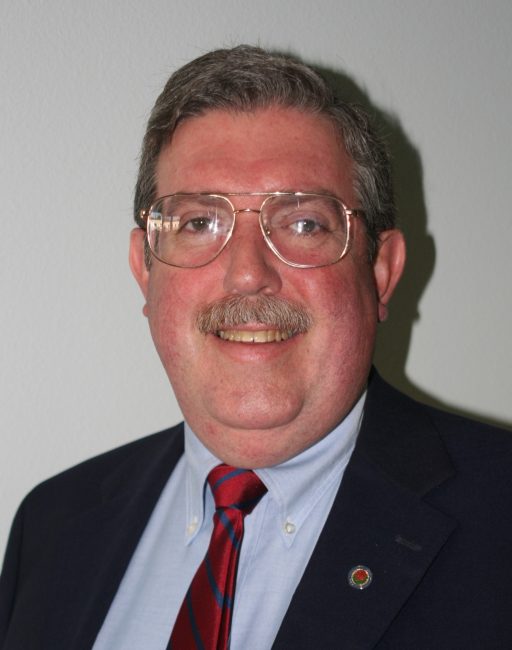Why Mark Harmsen Joined the PCC Foundation
Mark Harmsen believes in the American dream.
Which is to say, he believes in PCC.
“In order for people to achieve the American dream,” he says, “they first have to have the opportunities and resources to go out and pursue their goals. PCC offers that.”
Having attended PCC between 1976 and 1978, Mark experienced the impact of the College’s affordable, high-quality education firsthand.
“I wasn’t quite sure what I wanted to do after I graduated high school,” he says. “PCC gave me the opportunity to get all my general education courses out of the way while I figured it out. But it wasn’t only that. PCC had this great reputation and great teachers to boot. It gave me a base from which I could successfully transfer to a four-year school.”
 In 1978, Mark earned his AA degree from PCC and transferred to San Diego State University, where he studied business administration and management. He would go on to be the District Director for Congressman David Dreier from 1985 to 2013, a career that would see him in charge of the Congressman’s California office, rubbing elbows with city council members, school superintendents and board members, community leaders, and college presidents.
In 1978, Mark earned his AA degree from PCC and transferred to San Diego State University, where he studied business administration and management. He would go on to be the District Director for Congressman David Dreier from 1985 to 2013, a career that would see him in charge of the Congressman’s California office, rubbing elbows with city council members, school superintendents and board members, community leaders, and college presidents.
Now retired, Mark spends his time volunteering in the community, serving on the boards of the PCC Foundation and the Tournament of Roses Foundation.
But like any good American dream, it was Mark’s education that gave expression to his success.
“My education is the reason I’ve had the life I’ve had,” he says.
Raised by librarians, both Mark and his sister learned the importance of reading at an early age.
“Both my parents were lucky enough to have gone to college,” he says. “They emphasized the importance of an education to us and how fortunate we were to have the opportunity to get one.”
As Mark puts it, his family didn’t live high on the hog.
“We were very middle-class people,” he explains. “Nothing was ever given to my parents outright; they had to earn everything. Yet they were able to provide for me and my sister through their hard work, and because of that, we were able to go on and find our own success.”
“Ultimately, my parents taught us the value of being good citizens,” he says. “And I truly believe that being a good citizen is about working to improve your community.”
As a lifelong Pasadena resident, Mark takes enormous pride in his community.
“In terms of its history, its culture, its uniqueness, Pasadena’s been a very good city to me,” he says. “PCC, in particular, was very good to me. And now that I have the opportunity to give something back to the College, I do.”
This is the reason Mark joined the PCC Foundation in 2019.
As he says, “The idea of helping and supporting the Foundation, and in turn helping PCC students, was very appealing to me.”
Drawn back to his alma mater because of its central mission and its significance to the broader community, Mark found himself serving as co-chair of the Foundation’s Scholarship and Student Success Committee.
He describes his involvement with the committee as “particularly rewarding.” He wasn’t just helping distribute money to students, he was learning about the challenges modern students face.
He says, “Students today are juggling so many pressures—the cost of housing, the cost of transportation, the challenges of supporting a family and just trying to make ends meet. We’re dealing with a rapidly changing economy, with different types of jobs coming and going. Sometimes it seems like someone pushed the fast forward button on life. So yes, the demands of being a student today are much greater, I think, than when I was a student some 40 plus years ago.”
Even more fulfilling, Mark became a useful part of a team that he respected.
“All of us on the Scholarship Committee take a great deal of pride in what we do,” he says. “These are people who really care about PCC students and want to help them succeed in their education.”
The Scholarship Committee recently revised its application process to eliminate bias and make it more accessible to a wider range of students. To do this, the committee asked Kari Bolen, PCC’s Chief Diversity, Equity, & Inclusion Officer, to sit in on meetings and provide guidance. Now, the scholarship application includes multiple essay prompts students can choose from, and it no longer requires fields of community service and/or extracurricular activities.
“Being able to help raise money and help identify students who are worthy of receiving a scholarship is just very heartwarming and rewarding,” Mark says. “It’s a lot of work, but when you go to one of the Foundation’s scholarship ceremonies and get to actually meet some of these individuals, it’s a very moving experience. You can see what it means to them and their families.”
Mark describes a recent experience he had with a scholarship winner as “eye-opening,” and for this reason, he’s proud of the Scholarship Committee’s efforts to make the application process more accessible.
“We are constantly evaluating the process to make it more useful to all PCC students,” Mark says. “We are also looking at new and innovative ways to make students aware of scholarship opportunities available to them and how best to keep the application process as easy as possible.”
“PCC is just a wonderful local treasure,” he adds. “It gives people real opportunities, and our community is the better for it.”